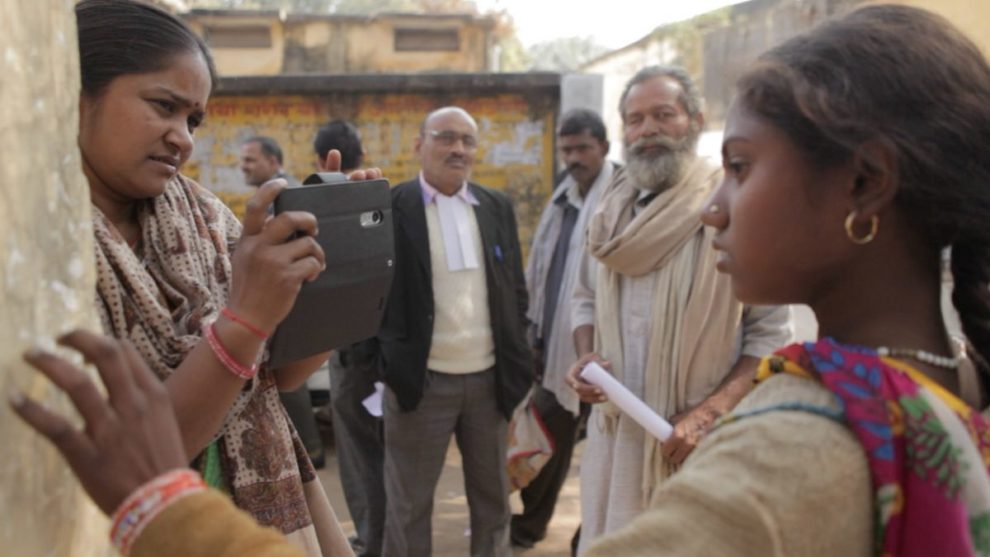Dalit is a name for people belonging to the lowest caste in India, characterised as “untouchables”. Dalits were excluded from the four-fold varna system of Hinduism and were seen as forming a fifth varna, also known by the name of Panchama. Dalits now profess various religious beliefs, including Hinduism, Buddhism, Sikhism, Christianity, Islam and various other belief systems. At the same time, however, their persecution continues by the other castes, with their exploitation and violent incidents particularly towards women being, unfortunately, an almost daily occurrence. In such an awful setting, even more so since violence towards journalists is not uncommon, is exactly where India's only newspaper run by Dalit woman is active, as Chief Reporter Meera and her journalists run Khabar Lahariya, literally against all odds.
“Writing with Fire” is screening at the Thessaloniki Documentary Film Festival
Their coverage includes all those events no one else ever writes about; the raping of Dalit women, the mafia who run illegal mines not caring about the people working there, the rise of Hindu nationalism, which eventually brought Modi on power, and caste discrimination, among others. Armed with their mobile phones, essentially recording videos with two-women teams they then edit and upload on YouTube themselves, their life is an endless series of fighting against people who are not willing to talk to them due to their sex and caste and a police whose evident corruption causes more problems than it actually solves.

At the same time, they face a number of issues of personal nature. Meera does not have enough time to deal as much as she wanted with their two children. Suneeta, one of the most promising reporters, is met with pressure from her parents to get married and leave her profession, also having to face landlords that will either not rent to single women working in such a field, or are extremely judgmental of her life. Shyamkali, one of the journalists, who, when the story of the movie begins does not even know how to switch her phone on, had to fight against her husband, physically even, in order to keep her job. The way these two in particular progress both as journalists and as individuals, under the guidance of the ever patient Meera, is one of the most appealing aspects of the documentary.
This combination of presenting their portraits both as journalists and women works quite well for the narrative, giving it more depth and allowing the viewer to empathize more intently with them, also adding to the overall entertainment the film offers. In that regard, the editing by the two directors emerges as ideal, both in the ways these two aspects are combined, and for the overall pace they have implemented, which works particularly well with the main theme.
What emerges from the presentation of Khabar Lahariya and its continuous, unparalleled success is that their existence was actually a necessity for an Indian society that is deeply sick. Corruption, prejudice, racism against caste and sex and subsequently intense nationalism seem to be the rule in the country, resulting in more and more violence against all kinds of people, who did not have a voice berofe at all, with the caste system obviously having failed. The part of the film regarding the elections in Uttar Pradesh highlights the fact in the most eloquent way, with the protagonists' reaction against Modi seeming like a drop in the ocean of Hinduistic adoration that brought him to power, intensifying all the aforementioned problems. The monk who is his representative in the area is probably the most iconic sample, with his call for ten-fold violence against anyone who kills a Hindu being truly horrific in its pragmatism.
“Writing with Fire” is a truly great documentary that manages to present and analyze these women and their remarkable work, as much as India as a state, in a combination whose equal technical prowess results in a film that is also easy to watch despite the heaviness of its main themes.














